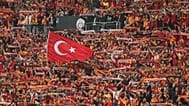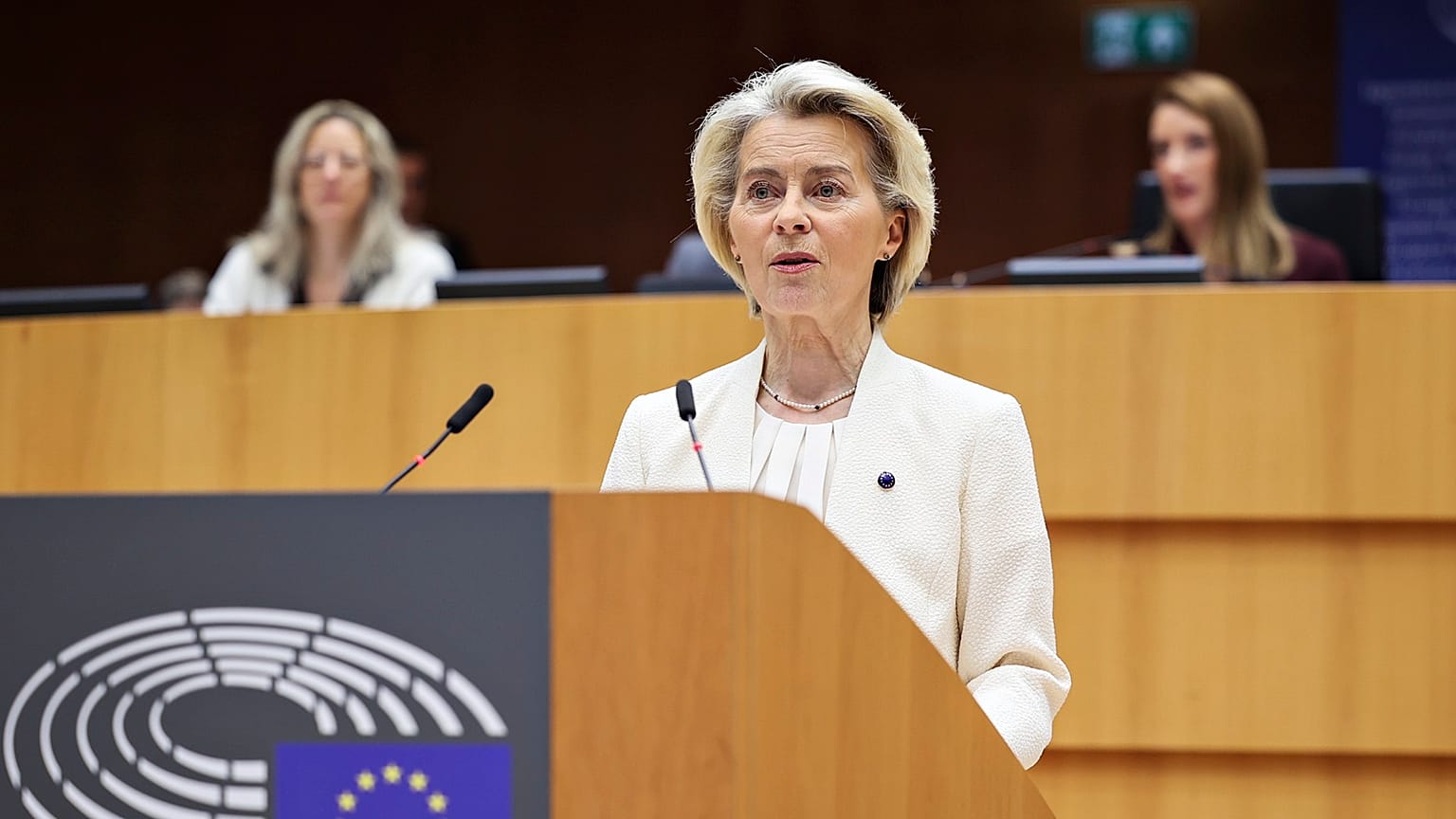Ursula von der Leyen has outlined a plan B to fund Ukraine should the reparations loan pegged to the Russian assets fail. The loan is still seen as the best option to keep the financing going even if Belgium plays hardball.
Ursula von der Leyen has outlined alternatives to a reparations loan to fund Ukraine's budgetary and military needs as Belgium plays hardball over the bold scheme to use the immobilised assets of the Russian Central Bank.
The options include raising debt in the markets backed by the EU budget and bilateral agreements for individual borrowing at the national level. These would be considered if the effort to issue a reparations loan pegged to the Russian assets falls flat.
Von der Leyen said the loan remains the leading option.
"We give a loan to Ukraine – that Ukraine pays back if Russia pays reparations," the president of the European Commission said on Thursday morning, speaking to a plenary session of the European Parliament.
"This is the most effective way to sustain Ukraine's defence and its economy. And the clearest way to make Russia understand that time is not on its side," she went on.
"We will show that, if needed, we are in this for the long haul. That Europe will stand with Ukraine for as long as it takes."
The idea of issuing a €140 billion reparations loan emerged in September and has since gained traction among member states, which are cash-strapped, lack space in their national budgets to accommodate extra borrowing and fear market backlash.
The advantage of using the immobilised Russian assets is that it would not involve the issuance of fresh debt individually, as the money would come directly from the cash balances currently kept at Euroclear, a central securities depository in Brussels.
But the proposal has met fierce resistance from the Belgian government, which, as host of Euroclear, worries it would be the prime target of the Kremlin's aggressive retaliation. Belgium and Russia are bound by a Soviet-era investment treaty that foresees arbitration.
Last month, Belgian Prime Minister Bart De Wever held his ground and prevented an endorsement of the reparations loan by EU leaders. De Wever demanded "the maximum" legal certainty, airtight guarantees from all member states to ensure the "full mutualisation" of risks and transparency to locate other sovereign assets.
"If you take the money from my country, if it goes wrong, I am not able, and certainly not willing, in a week's time to pay €140 billion," De Wever said.
The deadlock remains even as the Commission tries to soothe the Belgian concerns and convince De Wever to sign off on the plan when leaders meet again in December for their final meeting of the year.
The European Commission is expected to soon present an "options paper" with alternative avenues to support Ukraine, in addition to the reparations loan.
Von der Leyen's speech on Thursday appears to be an informal presentation of such a paper, which capitals have not yet received.
"We are working closely with Belgium, and all member states, on options to deliver on this commitment," von der Leyen told MEPs.
Privately, EU officials and diplomats acknowledge that the only politically viable avenue is the reparations loan and the "options paper" is a tool to lay out the harsh reality of issuing joint debt. Nordic leaders, for example, have already ruled out borrowing.
Belgium, however, has grown frustrated with the Commission's insistence on the reparations loans, an impression that von der Leyen's intervention does nothing to dispel.
One EU official told Euronews the concerns of the Belgian government are "fair, but their demands are maximalist" as no financial operation can be pushed through with zero risk.
The clock is ticking for Ukraine as war continues
Ukraine will need a fresh injection of foreign aid in the second quarter of 2026. The decision by US President Donald Trump to cut off assistance to Kyiv means that the bulk of the financial effort falls squarely on European shoulders.
"We all want this war to end. But a lasting peace relies on a strong and independent Ukraine. Today, Putin still believes he can outlast us. He still thinks that, over time, Russia can achieve its aims on the battlefield. That is a clear miscalculation," von der Leyen said.
"Now is the moment to come with a new impetus, to unmask Putin's cynical attempts to buy time and bring him to the negotiating table. We must continue to raise the cost of the war for Russia."















